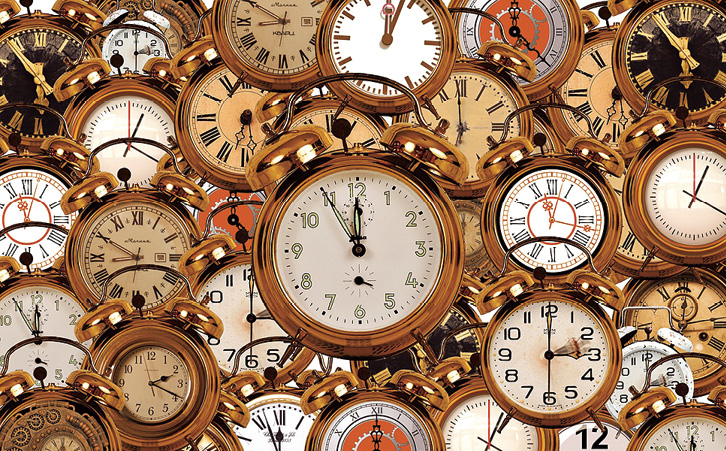“A day without sunshine is like, you know, night.”—Steve Martin
…and so, a night without darkness must be like, you know, day? If this strikes you as both goofy and confusing, spare a moment to pity your circadian rhythm. Its job is to keep your internal clocks running smoothly. Often, though, its efforts are disrupted by mixed-up signals.
Most living things, including humans, have circadian rhythms. They’re like built-in clocks that help us adjust to changes in our surroundings and stay in sync with the Earth’s 24-hour cycle. These rhythms don’t just control when we sleep and wake; they also affect things like hormone levels, digestion, body temperature, immune system function, metabolism, and how well we think.
Imagine you have an internal timekeeper that makes adjustments to these clocks based on cues that it receives from your environment. The two most powerful cues are the amount of light and darkness to which you’re exposed. Others include the timing of meals and exercise, social interactions, daily routines, and stress.
When our internal clocks are out of sync with our daily lives, it can cause serious problems:
Fatigue and Sleep Problems: Off-kilter circadian rhythms can mean days with low energy and fogginess and nights with difficulty falling or staying asleep. If frequent enough, this misalignment can contribute to the development of insomnia.
Performance Issues, Accidents, and Errors: Sleep deprivation can cause excessive daytime sleepiness, difficulty focusing, memory issues, or difficulty with tasks that require precision (like driving or doing other work that requires attention to detail).
Emotional and Social Difficulties: Being chronically tired makes it more difficult to regulate your emotions and manage stress, and can lead to mental health issues and relationship conflict.
Health Problems: A wide range of health problems can be linked to circadian rhythms that are out-of-sync, including obesity, diabetes, heart attacks, high blood pressure, and cancer.
Fortunately, there’s much you can do to help your Timekeeper keep your internal clocks in rhythm:
Make sure your night is sufficiently dark: Keep your sleeping area as dark as possible. This helps your brain produce melatonin, the hormone that makes you sleepy. Sleep masks can help block light that you can’t eliminate. Motion-activated night lights provide soft lighting only where and when you need it.
Get plenty of bright light during the day: When light comes into your eyes, it tells your brain, “It’s daytime. Stop producing melatonin!” Switch off melatonin production by going for a morning walk and being in bright light during the day. Pull back the drapes, open the shades, and let the sunshine in.
Avoid long naps late in the day: They can make it difficult to fall asleep at night. If you must nap, make it earlier in the day, and set an alarm so that you “power nap” for no more than 15-20 minutes.
Get physical activity during the day: Our bodies rest better at night when they have something to rest up from. If you’re just getting started, check in with your healthcare provider and be gentle with yourself. Remember: something is better than nothing. You don’t have to go all out to benefit from movement.
Stick to a regular sleep schedule and bedtime routine: Changing schedules and routines throws the Timekeeper off rhythm. Getting up and going to bed at about the same time every day, and sticking to a predictable routine, helps keep it synced up.
Minimize the impact of electronics: It’s common for people to use electronic devices before bed (TV, smart phone, tablet, e-reader, game consoles, etc.). While research indicates that the blue light they emit isn’t as problematic as once thought, using electronics can still harm sleep. Be sure to turn off notifications, choose content that’s calming and positive, and shut them down at a time that lets you get plenty of rest.
Be careful about caffeine, and skip the nightcap: Different people clear caffeine from their system at different rates. Limiting it to the morning, or cutting it out altogether, may help you sleep better at night. Alcohol is a depressant that slows down brain activity. Drinking may cause you to feel sleepy initially, but later on in the night, it disrupts the sleep cycle and causes poor sleep quality.
Our modern world is “always on,” but humans aren’t built for that. We’re creatures of cycles and rhythms, and staying in sync with that reality helps us to be well.




